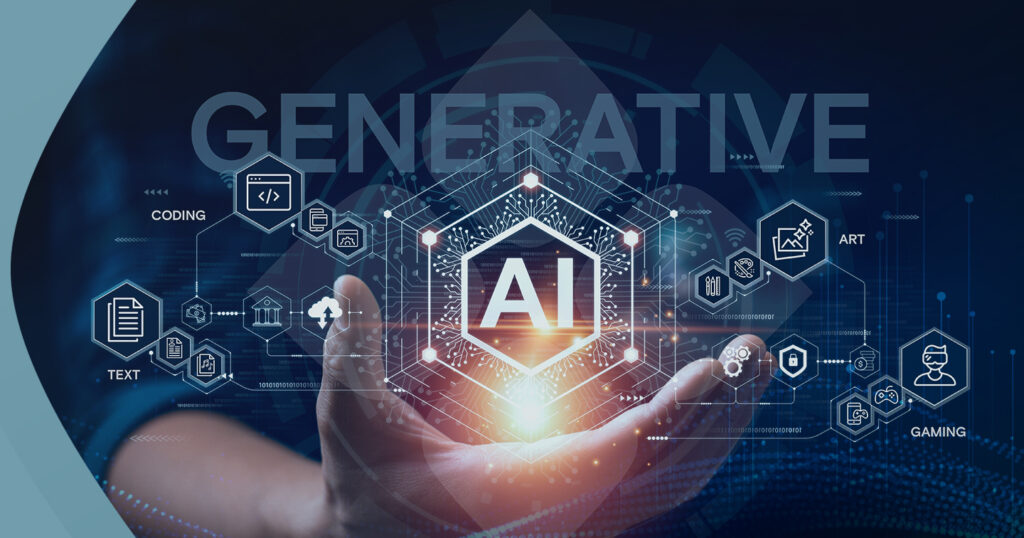The Future of Design: Harnessing the Power of Generative AI
As technology evolves, the future of design is being reshaped by innovative tools and techniques. One of the most transformative advancements in recent years is Generative AI—a technology that is redefining the way we approach design and creativity. From automated content creation to unique, personalized design outputs, Generative AI is a game-changer for designers and marketers alike. In this article, we will explore how Generative AI is revolutionizing the design landscape and how you can harness its power through effective Prompt Engineering, a critical skill taught in our Prompt Engineering Cours. How Generative AI is Transforming Design Automated Design Processes Generative AI can automate repetitive design tasks, such as resizing images, creating variations of graphics, or even drafting content for social media. By automating these routine tasks, designers can focus more on creative strategy and innovation, saving time and resources. Personalized and Dynamic Content One of the significant advantages of Generative AI is its ability to create personalized content tailored to individual user preferences. For instance, AI can generate unique product recommendations, personalized email designs, or custom web layouts based on user behavior and data. This level of personalization enhances user engagement and conversion rates. Augmented Creativity Generative AI acts as a creative partner, providing designers with an endless source of inspiration and ideas. By analyzing existing designs and creating new variations, AI tools can suggest novel concepts, color schemes, or layouts that designers might not have considered. This collaborative approach accelerates the creative process and pushes the boundaries of design innovation. Improved Efficiency and Speed Generative AI significantly reduces the time required for ideation and production. Designers can quickly generate multiple design iterations, receive instant feedback, and make data-driven decisions faster. This efficiency is particularly valuable for businesses with tight deadlines or a need for rapid content creation. What is Generative AI? Generative AI refers to a subset of artificial intelligence that uses algorithms to create new content, whether it’s text, images, music, or even entire websites. Unlike traditional AI, which relies on pre-programmed rules, Generative AI learns patterns from data and uses them to generate original outputs. This capability opens up a world of possibilities for creative professionals and businesses, enabling them to streamline workflows, enhance creativity, and produce high-quality content at scale. Harnessing the Power of Generative AI with Prompt Engineering To fully leverage the potential of Generative AI, mastering Prompt Engineering is essential. Prompt Engineering involves crafting effective input prompts that guide AI models to produce desired outputs. In our Prompt Engineering Course, we teach you how to create prompts that maximize AI’s creativity and relevance in generating high-quality content. Here’s how Prompt Engineering plays a crucial role in Generative AI: Precision and Clarity The effectiveness of Generative AI largely depends on the quality of the input it receives. Well-crafted prompts provide clear instructions and context, ensuring that AI generates outputs that align with your specific design needs. Learning how to write precise and goal-oriented prompts can make a significant difference in the quality of AI-generated content. Creative Exploration Prompt Engineering allows you to explore various creative directions by tweaking the input parameters. Whether you want to experiment with different design styles, color palettes, or typography, understanding how to craft prompts effectively gives you the freedom to explore new possibilities and push creative boundaries. Consistent Results By mastering Prompt Engineering, you can ensure consistency in the outputs generated by AI tools. Consistent prompts yield reliable and repeatable results, which is vital for maintaining brand identity and design standards across various platforms and campaigns. Key Applications of Generative AI in Design Graphic Design and Visual Content: AI tools can generate logos, social media graphics, and promotional materials that match your brand aesthetics and audience preferences. Web Design: Generative AI can automatically design responsive and visually appealing web layouts based on user data and behavior, enhancing the overall user experience. Content Creation: AI can assist in generating blog posts, articles, product descriptions, and ad copy, providing a starting point that can be refined and personalized by human writers. 3D Modeling and Animation: For industries like gaming, architecture, and film, AI can create complex 3D models, animations, and virtual environments quickly and efficiently. The Future of Design with Generative AI The future of design is bright, with Generative AI at its core. As AI technologies continue to evolve, we will see even more sophisticated tools that seamlessly blend creativity with technology. For designers, marketers, and business leaders, this means unprecedented opportunities to innovate, engage, and succeed in a rapidly changing digital landscape. By leveraging Generative AI and mastering Prompt Engineering, you can elevate your design strategy and achieve remarkable success in the digital age. Join us at Digital Kishore and become a leader in the future of design! John Doe Unlock the Power of Generative AI with Our Prompt Engineering Course To stay ahead of the curve, it’s crucial to understand and utilize the full potential of Generative AI. Our Prompt Engineering Course at Digital Kishore is designed to help you master the art of crafting effective prompts, enabling you to harness AI’s capabilities for superior design and content creation. Learn how to unlock creativity, enhance productivity, and drive business growth by enrolling today.
The Future of Design: Harnessing the Power of Generative AI Read More »
